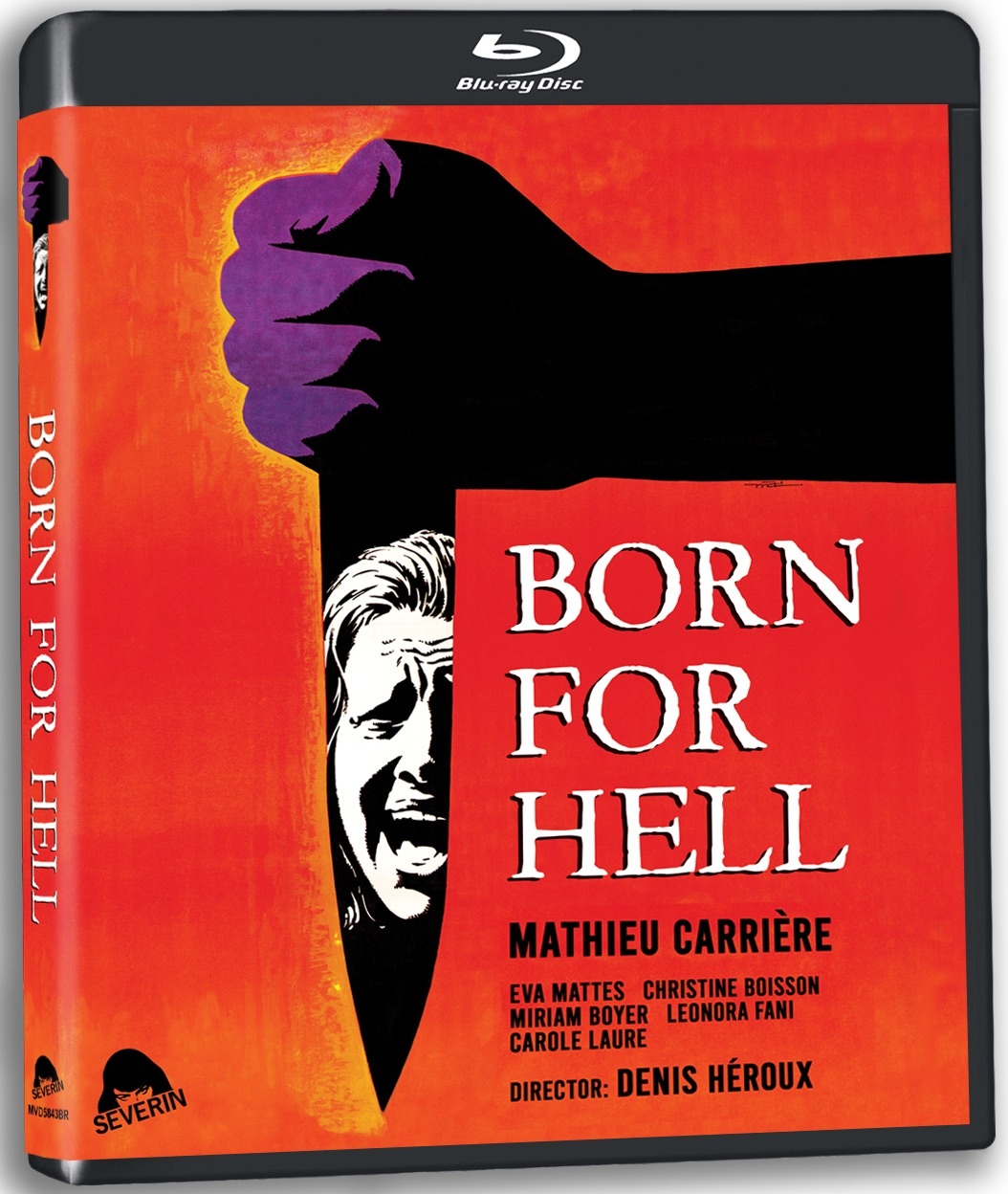Review—Born for Hell (Severin)
Author: Palo Sionoplia
Born for Hell is a retelling of Richard Speck’s infamous night of horror with a few twists. Most notably, director Denis Heroux takes the story out of its native Chicago terrain and transplants the tale to Belfast, effectively setting the tale of one night’s rampage within a larger context of IRA bombings and war in the streets. What may seem like a risky decision pays dividends. While Speck’s story is ultimately a tale of home invasion, Born for Hell strongly suggests that no place is safe, that life can end in violence at any given moment and in any given location.
If this sounds like brutal stuff, well, it certainly is. Born for Hell does not adopt the suspenseful tropes of a giallo or the overblown style of a slasher film. This is grimmer fare and more in keeping with Henry: Portrait of a Serial Killer—and anticipating that film by over a decade—than the Friday the 13th series. Mathieu Carriere’s depiction of Speck (renamed “Cain Adamson” in the film) is ruthless and unrelenting, and Heroux’s direction is less interested in generating tension than in prolonging moments of considerable discomfort.
Born for Hell bears some of the hallmarks of an ill-preserved film, though Severin’s transfer makes the most of what appears to be a less than ideal 35mm print. Color occasionally looks washed over, and signs of print damage pop up now and then. Born for Hell is disturbing and gripping enough, though, that these moments are unlikely to detract from the viewer’s overall experience.
Severin absolutely knocks it out of the park with the extras on their blu-ray release, providing hours of material relevant to the film and the story of Richard Speck. Up first is “The Other side of the Mirror,” an interview with Carriere that addresses his involvement in Born for Hell as well as his work on other films. (Malpertuis fans take note.) Up next is “Nightmare in Chicago,” a featurette that appropriately interviews John McNaughton (director of Henry) and Gary Sherman (director of Raw Meat and Dead and Buried). Interestingly, this piece is less about Born for Hell and more about the directors’ remembrances of the Speck case, as it’s clear that the story’s press coverage had an enduring influence on their filmmaking.
“A New Kind of Crime” follows, which is an extended interview/lecture with Esther Ludlow, host of the podcast Once Upon a Crime. Ludlow’s recounting of the Speck murders is filled with informative detail, though the presentation is somewhat off-putting. Her recounting of the facts is somewhat disturbingly upbeat; when you’re sharing space on a disc with Joe Coleman (the notorious painter and performance artist) and Coleman comes across as the more measured speaker, it may be time to course correct. Coleman contributes two featurettes, one in which he recounts Speck’s influence on his artistic career and another in which he shows off some Speck-related specimens from his “Odditorium,” an archive devoted to real-life horror that Coleman has been amassing for decades.
As if that weren’t enough, Severin has included a video essay by Chris O’Neill that contextualizes the Belfast bombing campaign, an Italian trailer, and an alternative, shorter yet more exploitive cut of the film (here retitled as Naked Massacre). For those interested in a deep dive, there is more than enough content to keep you busy.
For those who prefer their horror to be more of the beer-and-popcorn-with-friends variety, Born for Hell is going to be a tough sit. For those looking for stronger stuff, though, look no further. In his penultimate turn in the director’s chair, Heroux successfully works towards the creation of a bleak, uncompromising film that transcends genre via its serious aims. Severin is to be commended for bringing this film to blu-ray in the USA, as this overlooked work merits reassessment and a wider audience.

